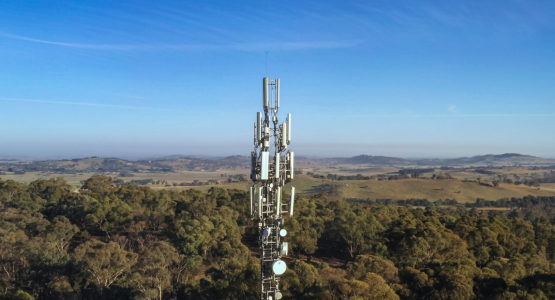Your 3G phone might still work! How delay in shutdown affects you
By
Gian T
- Replies 24
In a significant announcement that will impact many Australians, especially those hesitant to upgrade their mobile devices, Optus and Telstra have decided to postpone decommissioning their 3G networks.
Originally scheduled to cease operations at the end of August, the shutdown has now been extended to 28 October 2024.
This decision relieves hundreds of thousands of users who rely on 3G services for their mobile phones and other connected devices.
The delay is not just a mere postponement but a strategic move by the telecommunications giants to ensure a smoother transition for their customers.
Optus’s interim CEO, Michael Venter, and Telstra’s CEO, Vicki Brady, have both emphasised their commitment to a comprehensive public awareness campaign.
‘We are joining with Telstra to launch a final public awareness campaign to drive home the safety message and get the final groups of customers to act,’ Venter said.
This campaign aims to inform and encourage the remaining customers to upgrade to compatible devices before the new shutdown date.
Telstra has been actively communicating with its customers through various channels, including letters, SMS, advertising, and even doorknocking, to prepare them for the transition for nearly five years.
‘This has included multiple letters, bill messages, SMS, public awareness campaigns, advertising—even doorknocking and sending free phones to people in vulnerable circumstances,’ Brady said.
‘And our customer support won’t end the day the network closes.’
Despite these efforts, many devices must still be 4G-capable, including early-version smartwatches, wireless broadband devices, and Internet-of-Things (IoT) devices, such as water and electricity meters.
The concern extends beyond personal communication devices.
Critical equipment such as Eftpos machines, ATMs, CCTV systems, and medical alert devices that rely on 3G connectivity are also at risk of losing functionality.
Optus has reported approximately 100,000 devices, predominantly used by businesses, that are still operating on the 3G network.
The Australian government, through Communications Minister Michelle Rowland, has expressed support for the delay and urged Australians to check their devices for compatibility.
‘I want to encourage all Australians to take action and check if their device could be impacted,’ she announced.
‘The government remains concerned about a subset of 4G phones configured by the manufacturer to default to 3G for triple zero calls and personal medical alarms that rely on the 3G network.’
While the opposition has criticised the government for its response time to the shutdown warnings, Optus and Telstra's voluntary extension demonstrates a proactive approach to customer service and public safety.
It's important to note that Vodafone’s parent company, TPG, shut down its 3G network last year.
Decommissioning these networks across the board is part of a broader strategy to repurpose the mobile spectrum for more advanced 5G services, which promise faster speeds and more reliable connections.
 Have you made the switch, or are you still using a 3G device? Share your experiences and any concerns you might have in the comments below.
Have you made the switch, or are you still using a 3G device? Share your experiences and any concerns you might have in the comments below.
Originally scheduled to cease operations at the end of August, the shutdown has now been extended to 28 October 2024.
This decision relieves hundreds of thousands of users who rely on 3G services for their mobile phones and other connected devices.
The delay is not just a mere postponement but a strategic move by the telecommunications giants to ensure a smoother transition for their customers.
Optus’s interim CEO, Michael Venter, and Telstra’s CEO, Vicki Brady, have both emphasised their commitment to a comprehensive public awareness campaign.
‘We are joining with Telstra to launch a final public awareness campaign to drive home the safety message and get the final groups of customers to act,’ Venter said.
This campaign aims to inform and encourage the remaining customers to upgrade to compatible devices before the new shutdown date.
Telstra has been actively communicating with its customers through various channels, including letters, SMS, advertising, and even doorknocking, to prepare them for the transition for nearly five years.
‘This has included multiple letters, bill messages, SMS, public awareness campaigns, advertising—even doorknocking and sending free phones to people in vulnerable circumstances,’ Brady said.
‘And our customer support won’t end the day the network closes.’
Despite these efforts, many devices must still be 4G-capable, including early-version smartwatches, wireless broadband devices, and Internet-of-Things (IoT) devices, such as water and electricity meters.
The concern extends beyond personal communication devices.
Critical equipment such as Eftpos machines, ATMs, CCTV systems, and medical alert devices that rely on 3G connectivity are also at risk of losing functionality.
Optus has reported approximately 100,000 devices, predominantly used by businesses, that are still operating on the 3G network.
The Australian government, through Communications Minister Michelle Rowland, has expressed support for the delay and urged Australians to check their devices for compatibility.
‘I want to encourage all Australians to take action and check if their device could be impacted,’ she announced.
‘The government remains concerned about a subset of 4G phones configured by the manufacturer to default to 3G for triple zero calls and personal medical alarms that rely on the 3G network.’
While the opposition has criticised the government for its response time to the shutdown warnings, Optus and Telstra's voluntary extension demonstrates a proactive approach to customer service and public safety.
It's important to note that Vodafone’s parent company, TPG, shut down its 3G network last year.
Decommissioning these networks across the board is part of a broader strategy to repurpose the mobile spectrum for more advanced 5G services, which promise faster speeds and more reliable connections.
Key Takeaways
- Telstra and Optus have postponed the shutdown of their 3G networks until 28 October 2024.
- The extension ensures effective communication to customers for upgrading devices and mitigates the impact on those still using 3G services.
- Concerns were raised about devices, including early 4G phones, payment terminals, and medical alert devices, that rely on 3G.
- The communications minister, Michelle Rowland, considers the delay sensible and urges Australians to check their devices for impact, while the opposition criticises the government's response time to the shutdown warnings.








